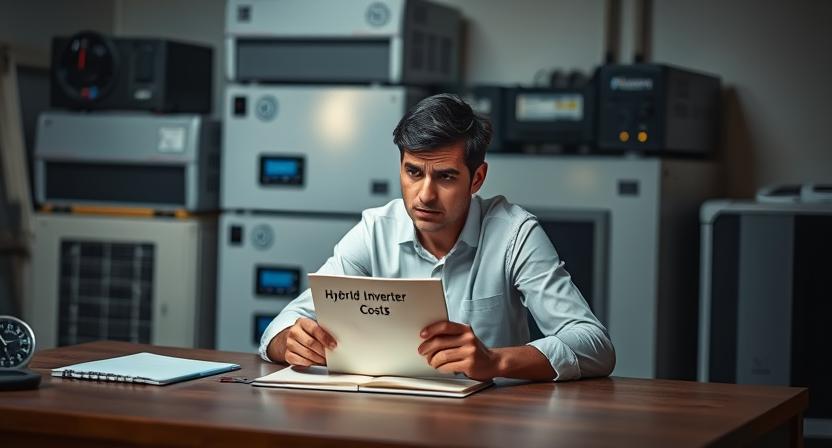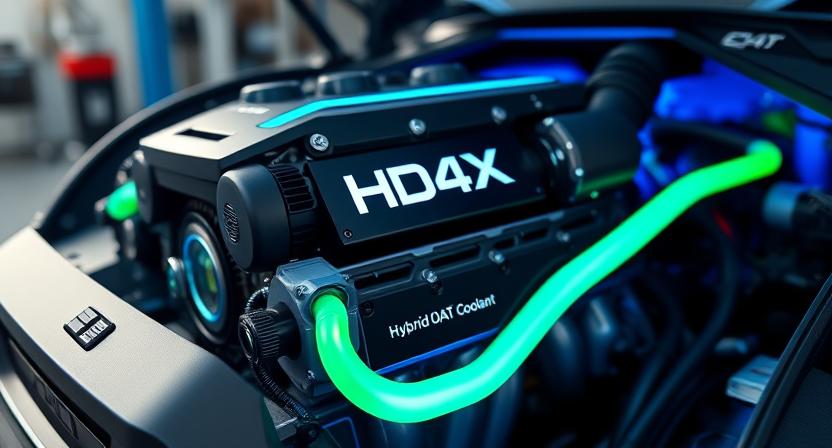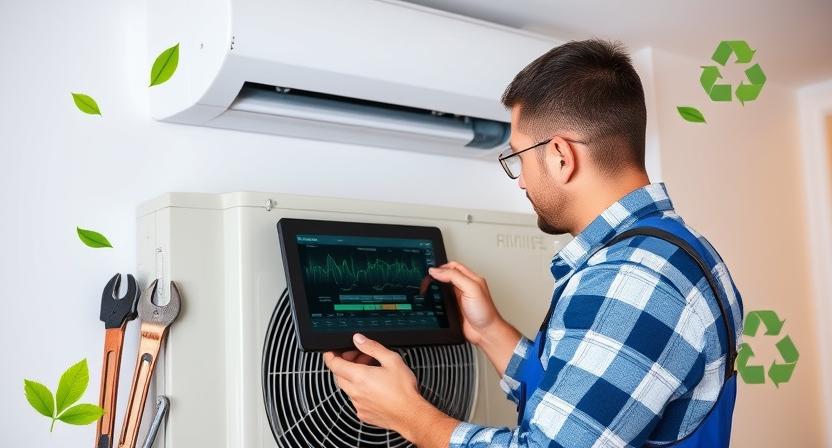Disadvantages of Hybrid Inverter You Should Know
Energy systems now operate differently thanks to hybrid technology, which provides greater control and flexibility. Hybrid inverters, which combine solar and battery electricity, are one of the inventions that have gained favour. Even though hybrid inverter systems have many advantages, it’s crucial to be aware of their drawbacks in order to make wise decisions.
Understanding disadvantages hybrid inverter Technology
Between solar panels, batteries, and the electric grid, hybrid inverters serve as a link. These gadgets control the electrical flow and make sure that power is allocated according to storage, generation, and demand. Hybrid inverters are more sophisticated than conventional inverters since they may be connected to the grid and allow battery backup.
Their multipurpose design boosts energy independence and lowers electricity costs for enterprises or homeowners. Users shouldn’t overlook the disadvantages that come with this intricacy, though.
Cost Challenges in Hybrid Inverter Installation
The initial cost is one of the main issues that buyers are worried about. Due to their additional features, hybrid inverters are more expensive than conventional inverters. Advanced battery storage is frequently needed for these devices, increasing the overall outlay.
High-capacity batteries, integration services, and smart energy meters may be part of the configuration in addition to the inverter. A higher initial cost is a result of all these factors. Over time, the cost may become greater than the anticipated advantages for customers who are frugal or live in small families.
Maintenance and Repair Limitations
Hybrid inverters may require more frequent maintenance. Not all technicians are qualified to work on these systems because they are more complicated than typical grid-tied inverters. It could take longer and cost more to find the proper part or an expert if something breaks down.
Because hardware and software are combined, there are additional potential problems. Users seeking a plug-and-play experience may find that regular monitoring is necessary for software upgrades, disadvantages hybrid inverter battery calibration, and connectivity problems.

Grid Dependency Risks
In certain setups, hybrid inverters may still be grid-dependent even with the additional features. The system may shut down for safety during power outages if it is not configured with the proper separation from the grid.
Because of the battery storage, customers may develop erroneous assumptions that they would always have power. In actuality, during blackouts, only systems that are set up with the appropriate backup switches and components will work.
This demonstrates one of the unspoken drawbacks of hybrid inverter systems in contemporary hybrid energy systems.
Limited Compatibility with Existing Systems
Existing solar arrays and battery configurations may not necessarily be compatible with hybrid inverters. For users with legacy systems or older panels, updating can necessitate replacing several parts.
Not every hybrid inverter is compatible with every battery. Due to this incompatibility, scaling a solar installation may become more costly and difficult.
Users who move from a typical inverter may also require new installation approvals, permits, or inspections. Deployment is delayed and irritation is increased by these regulatory actions.
Complex Installation Process
It’s not easy to install a hybrid inverter. It calls for meticulous preparation, specialised integration, and design customisation. To guarantee performance, electricians must compute energy demands, battery capacities, and grid alignment.
Installation mistakes may result in unstable power, shortened device lifespans, or even fire risks. Users are forced to employ qualified experts as a result, raising labour expenses.
System setup needs to be adjusted even after installation. This intricacy frequently causes confusion for new users and necessitates a learning curve they were not prepared for.
Battery Life and Performance Disadvantages Hybrid Inverter
An important component of hybrid inverter systems is battery technology. Batteries lose their effectiveness with time, which lowers the setup’s total performance.
The disadvantages hybrid inverter of using stored energy during peak hours decreases with battery life. Battery replacement is more expensive, and disposing of used batteries raises environmental issues.
When battery health deteriorates, some hybrid inverters may even work poorly. This turns into one of the most disregarded drawbacks of installing hybrid inverters, particularly in regions with harsh weather conditions where battery strain is greater.

Environmental and Sustainability Questions
Hybrid inverters still mostly rely on lithium-ion or comparable battery technology, even if they lessen grid dependency. There are environmental dangers associated with the mining and processing of the raw materials used in these batteries.
Disposal presents further difficulties. Safe recycling is crucial when a battery approaches the end of its useful life, but not all areas have simple solutions.
Additionally, carbon-intensive electronic components are used in the production of hybrid inverters. These elements are frequently overlooked when assessing long-term sustainability.
Limited Support and disadvantages hybrid inverter Issues
A lot of hybrid inverters provide software interfaces for control and monitoring. These interfaces might be out-of-date, glitchy, or have inadequate manufacturer support.
Users occasionally complain about power management issues or losing access to crucial performance data. Some issues can be fixed with remote firmware updates, but not all users feel confident handling this degree of digital upkeep.
Additionally, some manufacturers prevent users who desire more control over their device from accessing advanced options. For tech-savvy customers, this lack of flexibility is one of the main drawbacks of hybrid inverter systems.
Space Requirements and Aesthetic Concerns
Particularly when using batteries, a hybrid inverter system might occupy a substantial amount of space. This causes logistical problems for people who have little indoor or outdoor space.
Installing switchboards, inverters and batteries can change how a house or building looks. Because they don’t want to deal with heavy equipment taking up space in their garages or walls, some customers steer clear of hybrid installations.
Additionally crucial are proper cooling, ventilation, and safety clearance—all of which could not be possible in small living spaces.
Not Ideal for All Climates Hybrid Inverter
Weather can have an impact on inverter and battery performance. Climates that are extremely hot or cold have an impact on inverter performance, charging speed, and battery efficiency.
Temperature variations may reduce the longevity of system components in particular areas. Climate-resistant variants are available from manufacturers, however they are more expensive.
One of the situational drawbacks of hybrid inverter solutions is that they are less appealing in regions with extreme weather.
Choosing the Right Hybrid Energy System
It’s critical to assess your power requirements, geography, financial situation, and future energy goals prior to purchasing a hybrid inverter. Such a design won’t work for every property, particularly if the grid is stable and energy prices are cheap.
A hybrid inverter might still be a good investment for homes or companies with erratic power supplies or high energy costs. However, being aware of the disadvantages guarantees that you won’t be taken by surprise when it comes to hidden expenses or system restrictions.

Conclusion: Weighing Pros Against the Disadvantages
An advancement in renewable energy technology is represented by hybrid inverters. They allow consumers additional control by combining battery, solar, and grid power. However, they also have certain unavoidable disadvantages.
Users must carefully consider all factors, from compatibility and environmental considerations to cost and upkeep. Although hybrid inverter systems have drawbacks, they are still a good option, but before making an investment, careful thought should be given to them.




Post Comment